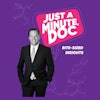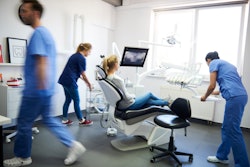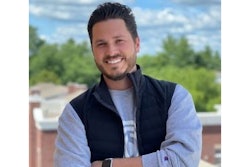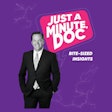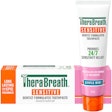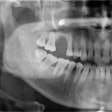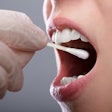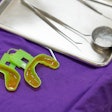 Dr. Ryan Hungate.
Dr. Ryan Hungate.
Dental hygienists are often the unsung heroes of a practice, managing everything from complex clinical work and patient anxiety to the relentless physical demands of the job.
In celebration of National Dental Hygiene Month, we spoke with three experienced hygienists who shared their insights on how to not just survive but thrive in this essential profession.
What technology can never replace
While all three hygienists embrace technology to make their jobs easier, they're quick to point out what it can never replace: genuine human interaction and trust.
“The personal interaction we have with our patients is indispensable,” said Vannessa De La Torre, a hygienist at Whitley Family Dental in Texas. “It’s so different with each patient that I don’t think technology would be able to replace it.”
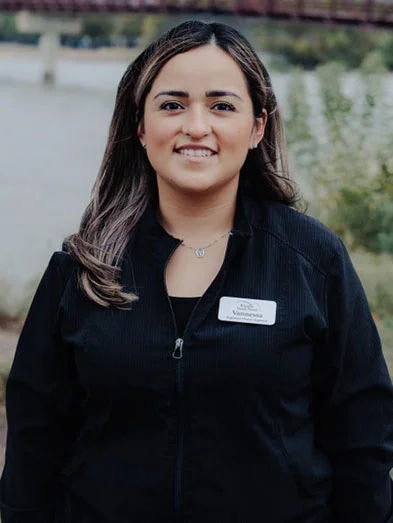 Vannessa De La Torre, RDH.Whitley Family Dental.
Vannessa De La Torre, RDH.Whitley Family Dental.
Her approach to easing patient fears is rooted in communication and empathy. “We take things slow,” she shares. “We explain everything we're doing so they know what’s going on.” This simple act demystifies the process and reduces the fear of the unknown for her patients.
Jordan Thom, a hygienist at Fox Valley Dental in Illinois, agrees and says that while technology has enhanced efficiency, it’s also created more room for genuine connection. “AI has been a game changer,” she said. “It frees up my time, and I’m not having to multitask as much.”
Still, Thom says no software can replace the personal bond hygienists build over time.
“I’ve worked at the same practice for 23 years, so I’m very connected with our patients. Sometimes this is the highlight of their day -- especially for older patients who maybe don’t have much outside contact. Just bringing a little friendliness and kindness can make a big difference.”
 Mary Williams, RDH.A Shop for Smiles.
Mary Williams, RDH.A Shop for Smiles.
Mary Williams, a hygienist at A Shop for Smiles in California, echoes that sentiment, “I see my patients every three or four months, so I get to know them very well,” she said. “That trust factor is so important. If I recommend treatment, my patients usually agree with it because I’ve cultivated that relationship.”
Building a culture that prevents burnout
The demanding nature of hygiene work makes a supportive workplace culture essential for longevity. Small intentional practices can make a huge difference in team morale and resilience.
At William’s office, the day starts with a morning meeting. “We pick a song to get the morning started,” she says. "We also do a quick check-in where everyone rates their mood on a scale of 1 to 5,” she explained. This practice helps the team understand who might need extra support.
Flexibility is another key cultural element. De La Torre's practice fosters open communication with the doctor and office manager, allowing for adjustments when needed. “If we find a patient that needs a little bit of time, they’re always open to giving us those extra few minutes,” she said. This buffer reduces stress and ensures every patient gets the time and attention they require.
Thom credits her own long career to that kind of supportive environment. “That kind of consistency helps you form deeper relationships, not just with patients but with the whole team. We all look out for one another.”
 Jordan Thom, RDH.Fox Valley Dental Care Aurora.
Jordan Thom, RDH.Fox Valley Dental Care Aurora.
This sense of community doesn’t just strengthen patient relationships, it prevents burnout by making hygienists feel valued and supported.
Protecting the provider
A long career in dental hygiene requires a proactive approach to both physical and mental well-being. All three hygienists stress the importance of taking care of yourself as intentionally as you care for your patients.
William’s wellness routine is extensive: “I work out a lot. Chiropractor, Pilates, massages. Those are huge because it’s definitely hard on your body.”
De La Torre echoes the value of prioritizing health, noting that connection and support are just as important as stretching or exercise. “The best way I like to deal with stress is just venting to family or other hygienists,” she said.
When it comes to advice for younger hygienists, each points to lessons that came with experience. “I wish I’d listened to the first doctor who told me I was sitting not ergonomically correct and that someday it’s going to affect me,” said Williams. “Take care of yourself right from the start.”
De La Torre’s guidance centers on patience and confidence: “Be easy on yourself at the beginning. You’ll make mistakes, and you’ll probably second-guess yourself a few times. But with time, you’ll gain confidence, and that makes you a better hygienist.”
And from Thom, a reminder that simplicity and empathy matter as much for providers as they do for patients.
“Encourage your patients, take care of your body, and remember why you chose this job in the first place.”
As chief clinical and strategy officer, Dr. Ryan Hungate, MS, leads Henry Schein One’s revenue cycle management automation and One Platform strategy. Dr. Hungate is the founder of Simplifeye Inc. and an orthodontist. Prior to pursuing dentistry, Hungate worked for Apple designing the Apple retail workflow.
The comments and observations expressed herein do not necessarily reflect the opinions of DrBicuspid.com, nor should they be construed as an endorsement or admonishment of any particular idea, vendor, or organization.




